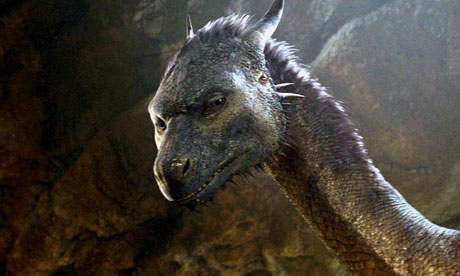
What makes a novel good? It's certainly a question which generates a great deal of discussion. People might describe a successful novel as original, interesting or maybe even breathtaking, but all of these abstract adjectives cannot clearly define what a good novel really is, or even provide arguments to explain why a certain creation is believed to be so.
Nowadays, fantasy novels are the ones which most attract the public's eye, but in my opinion this category needs to be divided in two: firstly, the ones which are wholly made up, and secondly, those which are based on different kinds of legends. So what makes each type of fantasy novel attractive?
For the first category, the best example would be The Lord of the Rings. I believe that those who prefer this sort of book are mostly satisfied with a reality which is completely different to the one we live in. The reader becomes part of a new world which he discovers slowly, step by step, in his reading. This is in basic terms a history and geography lesson about a mysterious and unknown world, which fully satisfies a reader with a strong interest for an unreal world. A world which implies different laws than ours, different kinds of creatures which reminds us mostly of a fairytale. It is believed that in this kind of book details are the ones which matter the most because they are meant to outline the novel's mystical reality. An interesting fact about this would be the fact that it took much more time for Tolkien to make up a wholly new language for elves in his book than even writing the action itself.
Another good example of this type of fantasy is Eragon. This trilogy seems just like a fairytale which takes you out of this world into an unknown world and time, where everything seems confusing at first when you are not used to it. Besides, here even the main character is surprised when he discovers a dragon, so what should you be prepared for? The word which best describes this type of fantasy books is 'unpredictability', because here, everything is possible and maybe this is the feature which attracts readers in the first place.
On the other hand, a fully made-up novel can seem boring and without sense to some other readers, therefore in their fictional reading they try to find a grain of reality which brings to light the mystery in our world, like for example Carlos Ruiz Zafon's Midnight Palace. This novel is based on an urban legend which exists in many countries under different names 'Silverpillen' (Silver Arrow) in Sweden or 'Funeral Train' in USA. In essence they are all the same thing: a hunted train which appears like a ghost regularly in certain places. I consider that those urban legends make a novel really interesting because they are like a tool through which the author reveals the so-called dark and unknown side of our extremely realistic and rather dull world. Of course, usually the authors of those books tend to exaggerate certain features and details in order to make the novel even more impressive, but in fact the core of truth itself makes the reading more amazing.
Another extremely interesting and outstanding variation of this type of fantasy is "tsarpunk", presented in Leigh Bardugo's Grisha trilogy. For those who are not really familiar with this term, its author briefly describes it as 'fantasy that takes its inspiration from the aesthetics, culture, politics, and social structure of early 19th century Russia'. Basically, this book is extremely rich in all kinds of fantasy elements which are more or less common for all the other fantasy books, but what is completely outstanding and exciting is that it has a well-documented basis inspired by Tsarist Russia from 1800. Therefore it successfully combines real and unreal elements in the same place and creates a harmonized world. In other words, when you read the book, you don't feel like you are in another world, but instead, you feel like the real one is transfigured. This feature gives to Shadow and Storm an eerie vibe which makes it a true masterpiece of this genre.
There is certainly no such thing as a perfect recipe for a good fantasy novel, and it is clear that both of those two types of fantasy books are interesting to different sorts of people. Different readers seek totally different things in a book and see them from different perspectives, but both can be equally gripping.
Which do you prefer, and why? Does Shadow and Bone perfectly combine the two? Or do you think it doesn't matter as long as the quality of writing is good enough? Send us your thoughts - childrens.books@theguardian.com - or join the discussion on Facebook

